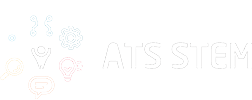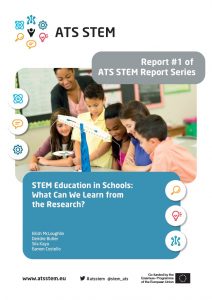16 Dec 1 STEM Education in Schools: What Can We Learn from the Research?
STEM Education in Schools: What Can We Learn from the Research? Report #1 Summary
“The major implication of this review and synthesis of literature in STEM Education is it highlights the need to scaffold an integrated approach to designing STEM learning activities for students that will develop their core STEM competences.”Key takeaways
- Policy makers would gain an insight into best practice examples, allowing for such practices to spread and be adopted towards affecting meaningful change and curriculum reform in STEM education. The literature review and synthesis would provide a basis for forming relevant STEM educational policies.
- For teachers and teacher educators would gain an understanding of Core STEM Competences, integrated STEM curriculum, STEM education in Teacher education, and assessment in STEM education
- The report embraces the integration of all STEM subjects together in coherent activities to offer more authentic and meaningful STEM education and leads towards a conceptual framework based on relevant literature.
- Provides a strong theoretical and research foundation regarding STEM education, with particular respect to schools. The report also aims to present examples of how STEM education has been defined and implemented in school curricula and how digital assessment of transversal skills and competences has been carried out.
The Report
This report was written as a part of a research project titled Assessment of Transversal Skills in STEM (ATS STEM) funded by Erasmus+. It is the first in a series of five reports based on deliverables related to the ATS STEM project. The selection of literature for final inclusion in this review was informed by the identification of five research questions as deemed most relevant to the focus of the ATS STEM project, namely:
- What are the different definitions of STEM education?
- What are the core STEM competences?
- What does an integrated STEM education curriculum look like?
- How do teachers understand the learning domain and its perceived goals as well as the most appropriate way to organise learning activities?
- What is assessed in STEM education?
Overall, 79 publications were identified as relevant for inclusion in this review, and the emergent themes from our analysis of the selected literature in relation to each of the five research questions are presented in this report.
We identified 243 specific STEM skills and competences, which were classified as eight core STEM competences: collaboration, problem-solving, innovation and creativity, critical thinking, disciplinary skills and competences, self-regulation, communication, and metacognitive skills.
Designing integrated experiences and providing intentional and explicit support for students is necessary in order to build knowledge and competences both within the disciplines and across disciplines. Connecting ideas across disciplines is challenging when students have little or no understanding of the relevant ideas in the individual disciplines. The use of appropriate resources (including use of digital tools and resources), innovative pedagogies and curriculum innovation, are particularly important in facilitating an integrated approach to STEM teaching and learning in schools.
Several studies highlight the need for teachers to engage in professional learning and collaboration with teachers from other disciplines to identify cross-cutting themes. This collaboration is essential to support teachers in order to deepen their knowledge about other disciplines, and become familiar with current practices of integrated STEM curricula. There were limited examples of tools and strategies that have been used by teachers in the STEM classroom reported in the literature with many studies emphasising the need to support teachers’ developing appropriate pedagogical knowledge and assessment practices for integrated STEM education.



